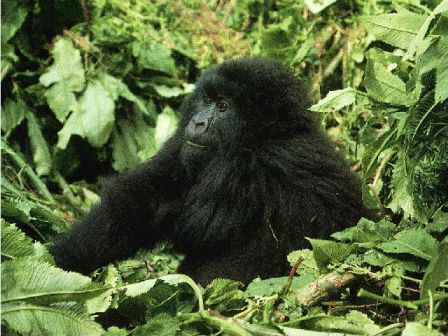Par Nelly Sallibartan (Collège Germaine Tillion (91)) le 25 mars 2010, 23:00 - news
 Deer are becoming a more common site in our towns and cities. The
numbers of deer in the UK has exploded over the past couple of years -
there are said to be up to two million of them. They may look pretty, but in a built up area they can cause a lot of trouble. They damage
cars and gardens, spread diseases and can cause road accidents. Andy
Welsh is an expert in wildlife, and says it's dangerous because drivers
in cities don't expect deer to jump into the road.
Deer are becoming a more common site in our towns and cities. The
numbers of deer in the UK has exploded over the past couple of years -
there are said to be up to two million of them. They may look pretty, but in a built up area they can cause a lot of trouble. They damage
cars and gardens, spread diseases and can cause road accidents. Andy
Welsh is an expert in wildlife, and says it's dangerous because drivers
in cities don't expect deer to jump into the road.
In rural areas people are more likely to anticipate a deer being
around. But in urban areas it's just not something you would think
about or consider. But what's important to know if you're on a fast
road that may be fenced, deer are still crossing. They don't worry
about stock fences they just go straight across them.
I've seen some deers too around Lardy and some wild boars and you ?
Do you ever see wild animals in your area?
In central Africa there are big concerns gorillas are in danger of
being wiped out. A new

report by the United Nations says this will
happen within the next 10 to 15 years unless something is done to
protect them. They say too many are being killed or are being left
homeless because companies are pulling down trees in the rainforest.
Chris Nellemann is an environmental expert. This is what he says : "What we are seeing now is that previous estimates from 2002,
that only 10 percent of the gorillas would remain by 2030 were too
optimistic. So we fear now that the gorillas may become extinct over
most parts of their range within, perhaps less than 15 years from now."
That reminds me of a film and book we've got at the school library, do you know the title?


 Don't forget we lose an hour in the morning this week end.
Don't forget we lose an hour in the morning this week end. Scientists say that DNA taken from an ancient finger bone found in a
Siberian cave near the Altai region may belong to a previously unknown
type of pre-human. The scientists say the extinct "hominin" (human-like
creature) lived in Central Asia between 48,000 and 30,000 years ago.
The bones were found with a bracelet, and they've called this ancient
skeleton X-woman. One of the scientists Professor Colin Groves said
that they think she might be a new species that we didn't know existed
until now.
Scientists say that DNA taken from an ancient finger bone found in a
Siberian cave near the Altai region may belong to a previously unknown
type of pre-human. The scientists say the extinct "hominin" (human-like
creature) lived in Central Asia between 48,000 and 30,000 years ago.
The bones were found with a bracelet, and they've called this ancient
skeleton X-woman. One of the scientists Professor Colin Groves said
that they think she might be a new species that we didn't know existed
until now.  We've just had elections too, so you may have some comments on this issue.
We've just had elections too, so you may have some comments on this issue.
 Deer are becoming a more common site in our towns and cities. The
numbers of deer in the UK has exploded over the past couple of years -
there are said to be up to two million of them. They may look pretty, but in a built up area they can cause a lot of trouble. They damage
cars and gardens, spread diseases and can cause road accidents. Andy
Welsh is an expert in wildlife, and says it's dangerous because drivers
in cities don't expect deer to jump into the road.
Deer are becoming a more common site in our towns and cities. The
numbers of deer in the UK has exploded over the past couple of years -
there are said to be up to two million of them. They may look pretty, but in a built up area they can cause a lot of trouble. They damage
cars and gardens, spread diseases and can cause road accidents. Andy
Welsh is an expert in wildlife, and says it's dangerous because drivers
in cities don't expect deer to jump into the road. report by the United Nations says this will
happen within the next 10 to 15 years unless something is done to
protect them. They say too many are being killed or are being left
homeless because companies are pulling down trees in the rainforest.
report by the United Nations says this will
happen within the next 10 to 15 years unless something is done to
protect them. They say too many are being killed or are being left
homeless because companies are pulling down trees in the rainforest.

 Thanks to Mrs Haquet's lovely and very interesting book you'll know
Thanks to Mrs Haquet's lovely and very interesting book you'll know everything about this Irish celebration.
everything about this Irish celebration.